Henry Kissinger, Former Secretary of State, Dead at 100
Kissinger was the oldest living former U.S. Cabinet member and the last surviving member of President Richard Nixon's Cabinet, prior to his death
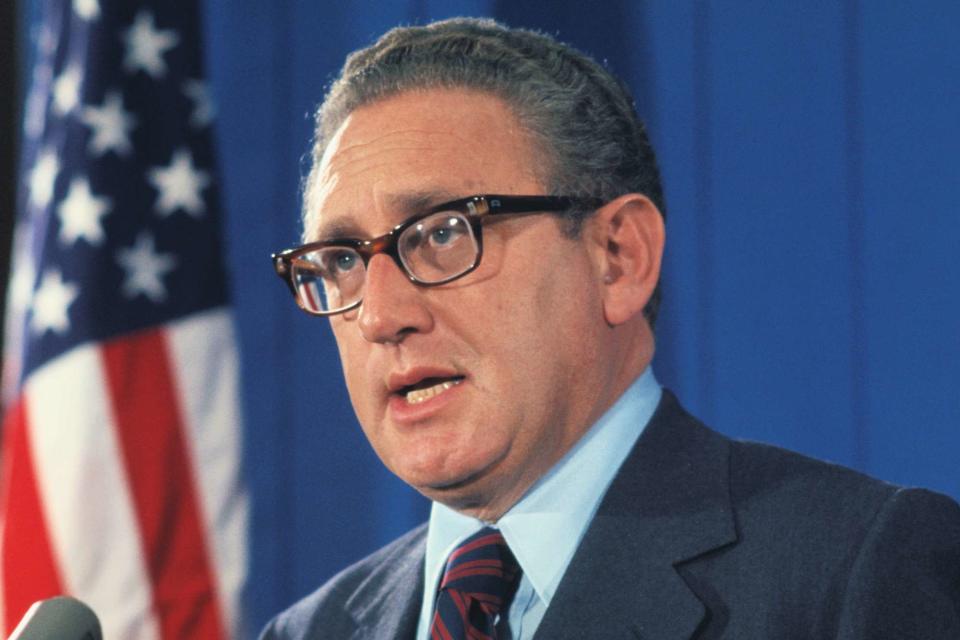
Bettmann Archive
Henry KissingerHenry Kissinger, one of the nation's most notable secretaries of state, has died at age 100.
Prior to his death, Kissinger was the oldest living former U.S. Cabinet member and the last surviving member of President Richard Nixon's Cabinet.
"Dr. Henry Kissinger, a respected American scholar and statesman, died today at his home in Connecticut," a statement provided via a Kissinger Associates news release said.
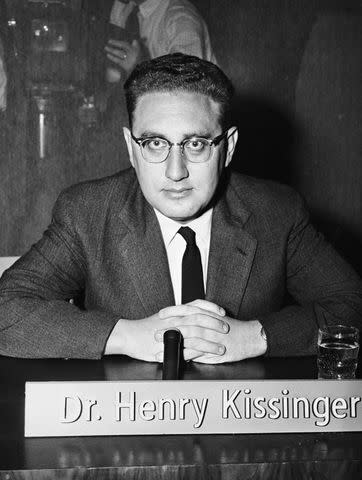
Born in Germany in 1923, Kissinger and his family fled Nazi Germany in 1938. During World War II, Kissinger joined the U.S. Army as an interpreter, becoming a naturalized citizen and eventually being awarded a Bronze Star for counterintelligence.
He would go on to attend Harvard University, where he earned both a master's and doctorate degree and began a career as a professor and national security consultant to Presidents Eisenhower, Kennedy and Johnson.
In 1969, he was named national security adviser in the Nixon administration, eventually becoming secretary of state in 1973 (at which time he held both roles, a historic first). Following Nixon's resignation due to the Watergate scandal, Kissinger was kept on as secretary of state by President Gerald Ford.
Related: Kissinger Finds His New Boss Gerald Ford Has Fewer 'Hangups' Than Nixon
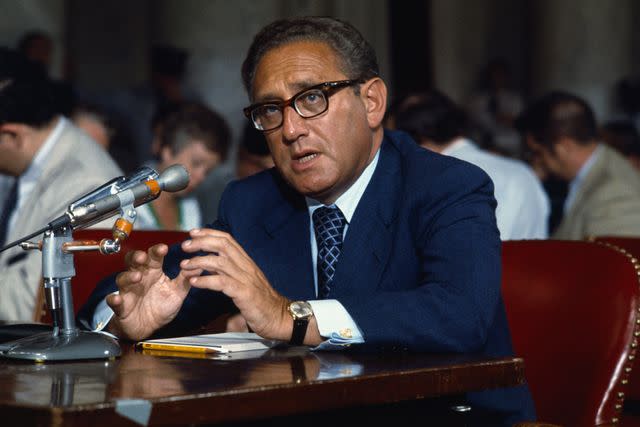
Revered by many as perhaps the most consequential secretary of state in U.S. history, Kissinger's record as a statesman is considerably mixed. Over the course of his career, he's received much condemnation, most notably when it comes to his alleged tolerance of war crimes in countries outside the U.S. and for his role in the Vietnam War.
Kissinger has also been criticizing for not notifying Congress that the U.S. had, in 1969, secretly bombed Cambodia and Laos by the U.S. — incidents that escalated the war. Later, he played an integral role in trying to end the war.
Kissinger participated in secret one-on-one meetings with North Vietnamese negotiator Le Duc Tho that helped lead to the Paris Peace Accords, which ended America's involvement in the Vietnam War.
He and Tho were ultimately awarded the 1973 Nobel Peace Prize for those efforts — though the award would become one of the most disputed in Nobel history, as the fighting would continue for more than a year.
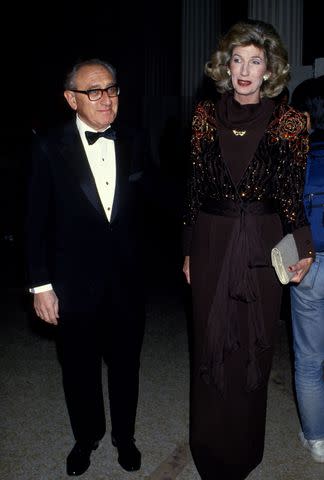
Kissinger left office after Jimmy Carter was elected president and since has worked in myriad positions, serving on various boards and in university teaching roles. He has remained a political fixture, often writing opinion pieces and appearing in the 2010 documentary Nuclear Tipping Point about his stance against nuclear weapons.
In 2016, Kissinger returned to the White House, this time to meet with President Donald Trump and discuss foreign policy. In a 2022 interview with PBS, Kissinger reflected on his meetings with Trump, saying he "had sympathy for him" in the infancy of his administration.
"But as his position developed of being so centrally focused on one person, so turning issues into confrontations, I became less enthusiastic. I wasn't enthusiastic, but I was hoping," Kissinger said. "And I met with him several times when he became president. At the end, for an American president to challenge the constitutional system and to try to overthrow the constitutional system is a grave matter. And I find no excuse for that."
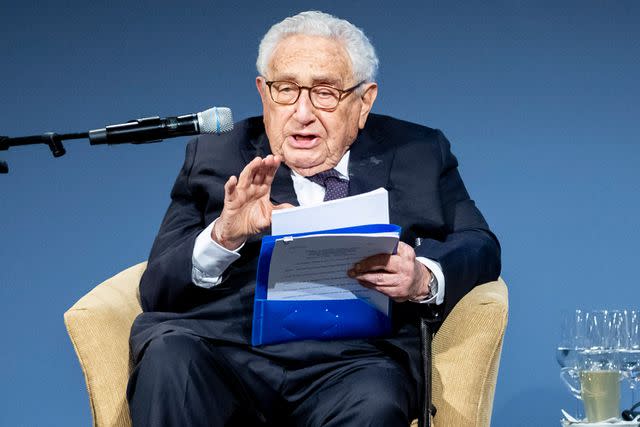
Kissinger shared two children — Elizabeth and David — with his first wife, Ann Fleischer, whom he divorced in 1964. He married his second wife, Nancy Maginnes, in 1974. He is survived by Maginnes and his two children, as well as five grandchildren.
A lifelong soccer fan, Kissinger was an honorary member of his hometown soccer club, SpVgg Fürth.
Never miss a story — sign up for PEOPLE's free daily newsletter to stay up to date on the best of what PEOPLE has to offer
In a 2000 interview, journalist Barbara Walters, who was close with Kissinger, told a story about when she and the diplomat once journeyed to his small hometown in Germany.
Kissinger at the time told Walters that he loved soccer but had been excluded from games because he was Jewish.
Thinking they wouldn't be noticed, the two of them went to watch a game play out, only to witness a remarkable reaction. Walters recalled, "We walked in — unannounced, we thought — to the soccer game, and he was recognized. And the soccer team stopped, and everyone in the stadium stood up."
For more People news, make sure to sign up for our newsletter!
Read the original article on People.


